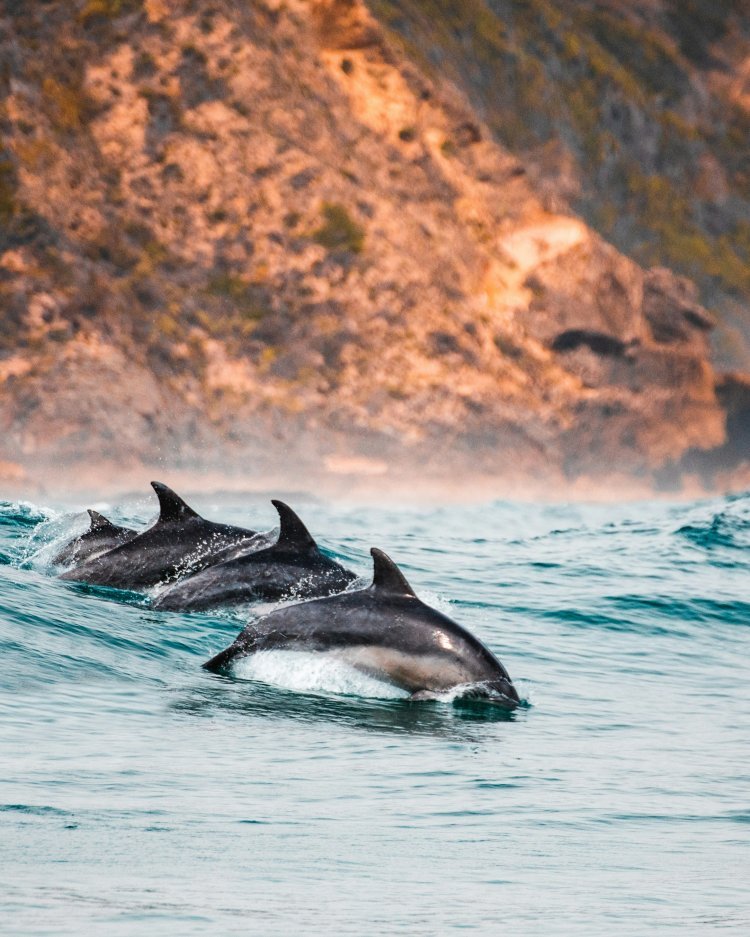Do Orcas Eat Dolphins?

In the vast and mysterious realm of the ocean, predator-prey relationships shape the dynamics of marine ecosystems. Among the apex predators of the sea, orcas, also known as killer whales, command attention for their intelligence, adaptability, and formidable hunting prowess. One question that often arises in discussions about orca behavior is whether they prey upon dolphins. In this article, we delve into the complex interactions between orcas and dolphins, exploring the evidence, theories, and implications of their potential predation.
The Nature of Orcas:
Orcas (Orcinus orca) are highly specialized predators with a diverse diet that includes fish, seals, sea lions, squid, and even other marine mammals. Their adaptability and cooperative hunting strategies make them one of the ocean's most formidable hunters, capable of targeting a wide range of prey species across different marine habitats.
While orcas are best known for their preference for certain prey species, such as salmon in the Pacific Northwest or seals in polar regions, their diet can vary depending on regional factors, prey availability, and social learning within individual orca populations.
Evidence of Dolphin Predation:
Numerous observations and studies have documented instances of orcas preying upon dolphins in various parts of the world. For example, in the waters off California and Mexico, orcas have been observed hunting and feeding on species such as common dolphins and Risso's dolphins.
In some cases, these predation events involve coordinated attacks by orca pods, where they work together to isolate, chase, and capture individual dolphins. Orcas may use their superior speed, agility, and intelligence to outmaneuver and overwhelm their dolphin prey, often targeting vulnerable individuals such as calves or injured adults.
Furthermore, examination of orca stomach contents and scat samples has provided additional evidence of dolphin consumption, confirming that dolphins are indeed part of the orca's diet in certain regions.
Theoretical Explanations:
The predation of dolphins by orcas can be attributed to several factors, including prey availability, nutritional needs, and ecological dynamics. Dolphins are abundant in many marine ecosystems and represent a substantial biomass that can sustain orca populations, particularly in areas where other prey species may be scarce or seasonal.
Additionally, orcas are opportunistic feeders and may target dolphins when other preferred prey species are unavailable or difficult to capture. Their intelligence and adaptability allow them to exploit a wide range of food sources, including dolphins, when circumstances dictate.
Implications for Conservation:
The predation of dolphins by orcas raises important considerations for marine conservation and management. While predation is a natural and essential component of marine ecosystems, human activities such as overfishing, habitat degradation, and pollution can disrupt these dynamics and impact both predator and prey populations.
Efforts to conserve and protect dolphins must take into account their role as prey species within marine food webs, as well as the potential impacts of predation by orcas. By maintaining healthy and balanced marine ecosystems, we can support the resilience and sustainability of both predator and prey populations, ensuring the long-term survival of these iconic marine species.
Conclusion:
In conclusion, orcas are formidable predators capable of preying upon a wide range of marine species, including dolphins. While predation events involving dolphins may be distressing to witness, they are a natural and integral part of the complex web of life in the ocean.
By studying and understanding the dynamics of predator-prey relationships, we can gain insights into the ecological roles of marine predators like orcas and the importance of conserving the diversity and integrity of marine ecosystems. Ultimately, our efforts to protect marine life must be guided by a holistic understanding of the interconnectedness of species and the delicate balance that sustains life in the ocean.
Learn More: DolphinXpert.com
What's Your Reaction?










![Wireless Connectivity Software Market Size, Share | Statistics [2032]](https://handyclassified.com/uploads/images/202404/image_100x75_661f3be896033.jpg)




